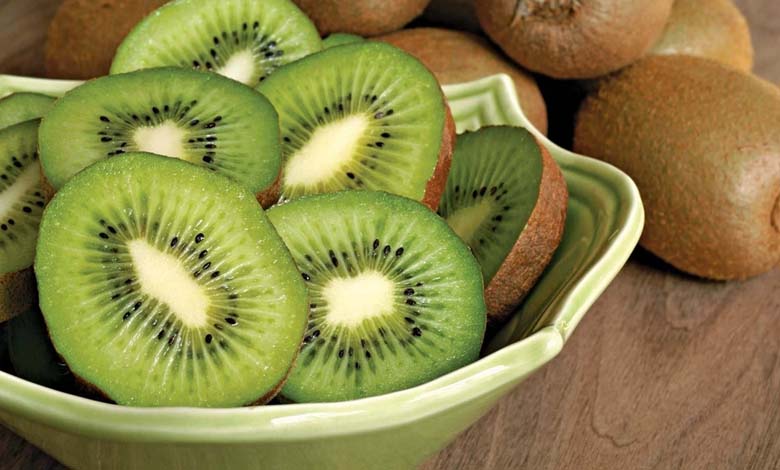Why is the kiwi called the super fruit ?

Among the many fruits that enrich our modern diet, the kiwi holds a unique position. Beneath its brown, fuzzy skin lies a vibrant green or golden flesh, with a sweet-tart flavor and, more importantly, an exceptional concentration of health-promoting nutrients. Scientists and nutritionists worldwide have labeled it a “super fruit” because of its impressive nutritional density, powerful antioxidant properties, and positive effects on multiple vital functions of the human body.
-
7 Fruits to Help You Get Rid of Insomnia… Try Kiwi
-
Vitamins, minerals, fibres… the kiwi: an essential for autumn, richer in vitamins than orange
Kiwi is one of the richest fruits in vitamin C, even surpassing oranges, which are typically seen as the benchmark for this nutrient. A single serving of kiwi (about two fruits) provides more than 200% of the daily vitamin C requirement. This is essential for immune system function, collagen production, and cell regeneration. Additionally, vitamin C acts as a potent antioxidant, protecting cells from oxidative stress caused by free radicals, which are linked to premature aging and chronic diseases.
Beyond vitamin C, kiwi contains a balanced combination of dietary fiber, potassium, folate, and vitamin K, along with a wide variety of polyphenols and carotenoids. These bioactive compounds play a major role in protecting the heart and blood vessels. Research has shown that regular kiwi consumption helps lower blood pressure and improves lipid profiles by reducing “bad” LDL cholesterol while increasing “good” HDL cholesterol. This combined effect contributes to the prevention of cardiovascular diseases, which remain the leading cause of death globally.
-
Avocado and Green Tea – Major Allies for Brain Health
-
How seasonal fruits and vegetables strengthen your immunity
Kiwi also stands out for its digestive benefits. Its high content of soluble and insoluble fibers promotes intestinal transit and supports gut microbiota health. Moreover, it contains a natural enzyme called actinidin, which helps break down proteins and enhances digestion, especially after heavy meals. This unique enzyme, rarely found in other fruits, gives kiwi remarkable digestive properties, making it particularly helpful for individuals with mild digestive disorders.
Beyond digestion and immunity, kiwi has a positive impact on metabolic health and weight management. Its low calorie density, combined with high fiber content, promotes satiety and helps reduce overall calorie intake. Furthermore, some studies suggest that kiwi may improve blood sugar regulation by slowing sugar absorption and preventing glycemic spikes—an important benefit for people with prediabetes or type 2 diabetes.
Kiwi also contributes significantly to skin health. Its antioxidants, particularly vitamin E and flavonoids, help fight damage from ultraviolet rays and stimulate cell regeneration. When combined with vitamin C, these nutrients enhance collagen production, which maintains skin firmness and elasticity. Thus, kiwi becomes a natural beauty ally, nourishing the skin from within and protecting it from premature aging.
Finally, the kiwi’s environmental footprint reinforces its reputation as a super fruit. It is a low-carbon crop grown in many temperate regions worldwide, including New Zealand, Italy, France, and Chile. Its production aligns with the principles of sustainable nutrition and plant-based diets, making it a perfect example of how health and ecology can go hand in hand.
-
5 Summer Fruits That Naturally Lower Uric Acid Levels
-
What Happens to Blood Sugar Levels When You Eat Mango Daily?
Therefore, the term “super fruit” is far from a marketing exaggeration. It reflects a scientifically supported truth: kiwi, thanks to its abundance of vitamins, minerals, and antioxidants, promotes cardiovascular, digestive, skin, and metabolic health. Consumed regularly, it stands as a cornerstone of balanced nutrition and preventive wellness—embodying the modern vision that food is, indeed, the first form of medicine.
-
Coconut Water or Coconut Milk — Which is Healthier for You?
-
Eating Papaya on an Empty Stomach: A Morning Habit That Boosts Digestion
-
Bananas and Potassium Sources: An Effective Alternative to Lower Blood Pressure
-
“Miracle Berry”: Exploring Its Health Benefits, Taste-Altering Properties, and Potential Risks
-
The “Amazing” Benefits of Eating One-Third of an Avocado Daily












